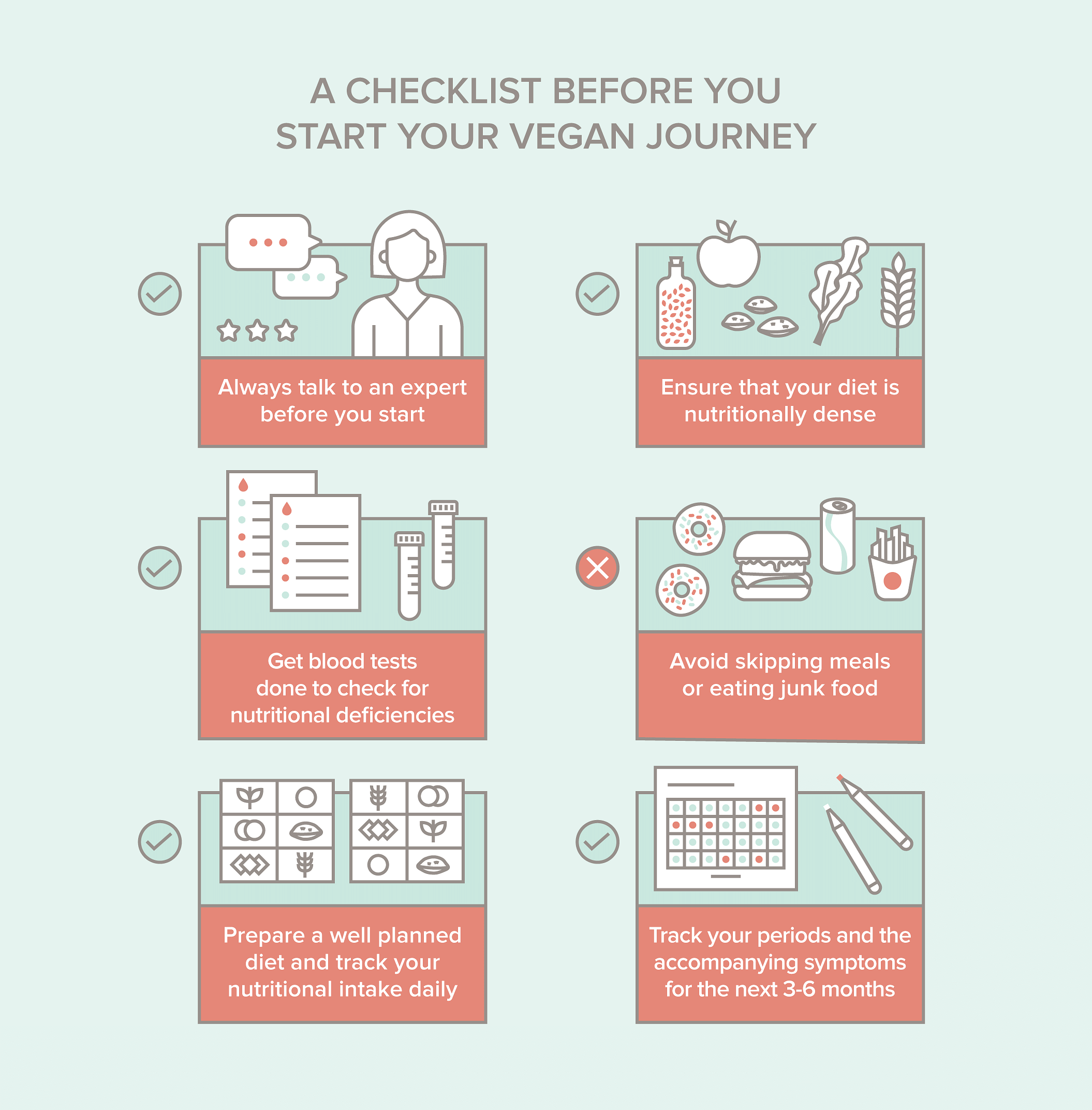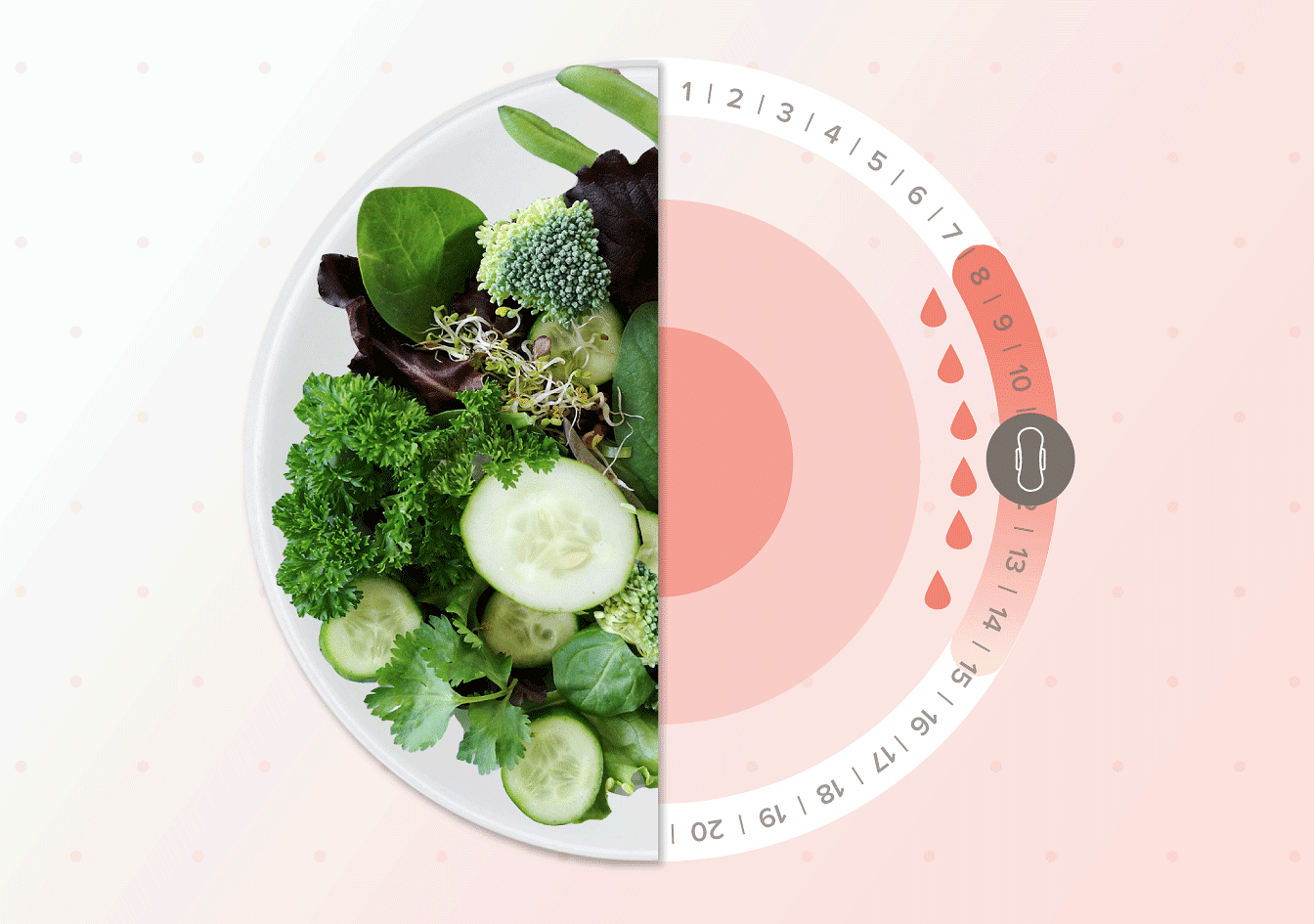Veganism is a way of living that aims to eliminate all forms of exploitation of and cruelty to animals for food, clothing or any other purpose, and promotes the usage of animal-free alternatives for the benefit of animals, human beings and the environment.*
A well-planned vegan diet is not only good for health but it can also help resist heart-related problems and manage diabetes in the long run.
Veganism is becoming increasingly popular. If you wish to adopt a vegan lifestyle, it is important to first fully understand the impact it can have on your health. We spoke to expert Huda Shaikh, a passionate nutritionist, clinical dietitian and certified diabetes educator, who is also the founder of NutriBond, The Period Movement and Sampurnaa Integrated that focuses on holistic health. She told us about some of the perks of veganism and the way it impacts our menstrual cycle.
What are the benefits of being vegan for women?
Being vegan comes with a lot of advantages for women which includes reduction in weight, lowered body fat percentage, clearer skin, lowered risk of kidney related diseases and cancer, lesser risk of arthritis post menopause, slow ageing and increase in life expectancy. Apart from the large array of physical benefits, a vegan diet also helps in improving one’s mental health.
Interestingly, around 79% of vegans are women, suggesting that women are more likely to adapt this lifestyle as compared to men.
Can veganism affect hormones?
Any sudden change in diet affects a person’s hormones. If you have recently shifted to a vegan diet, you can have hormonal imbalance.
- Vegans are generally known to have a lower BMI owing to their diet, and sometimes it may lead to hormonal disturbances.
- A vegan diet includes higher consumption of food like grains, lentils and millets which contain phytoestrogens that can affect ovulation and may stop it completely. It is also capable of mimicking the actual oestrogen and can affect the thyroid hormones.
- Iodine is required for proper regulation of the thyroid gland and its deficiency can cause thyroid hormones disruption.
Such effects vary from person to person and everyone has different experiences. To avoid any such hormonal imbalances, it is crucial to eat nutrient rich food and to choose a proper diet after consulting an expert.
Does veganism have any impact on menstruation?
Women who follow a vegan lifestyle experience lighter flow, shorter cycles (due to lower BMI and weight loss), lesser cravings, reduced headaches, lesser bloating etc. as compared to the ones who don’t.
However, in certain cases periods may cease completely or may last just for a day or two. This can be attributed to nutritional deficiencies or inadequate intake of certain nutrients such as iron, calcium, zinc, vitamin B12, vitamin E, vitamin D etc. Lack of vitamin B12 and iron can predispose one to anemia that can affect menstruation drastically. Some studies have also shown that one may experience heavier and painful periods post a shift to veganism. Hence, once you opt for veganism, keep a track of your menstrual cycle and flow.
Can it affect our cycle length and PMS in any way?
Switching to a vegan diet can affect your cycle length and PMS, but the effects vary from person to person. Usually vegans have a shorter cycle but in some cases it can increase. PMS symptoms ease out if you have been consuming a well balanced nutritionally dense diet. However, not taking in enough nutrients can lead to worsening PMS.
Does the importance of tracking one’s period increase if you are on a vegan diet?
Tracking one’s periods is important and it becomes crucial if there has been a shift to vegan diet. You should look out for your cycle length, flow, symptoms, pain level, and bloating. This would help you to understand whether veganism is working for your body or not. You can use applications available for tracking your periods or maintaining a log book.
What do you recommend first-time vegans do to maintain the balance in their menstrual cycle?
If you have decided to change your diet to vegan, make sure that you take expert advice. Visit a qualified professional to talk about your decision and how you can go about living a vegan lifestyle.
- Get your blood tests done well in advance to check for nutritional deficiencies, blood sugar level, thyroid level etc. For example, if you are anemic, you should correct it before you embark on your vegan journey. This would give you a clearer idea of what your blood parameters look like and what nutrients should be a part of your diet.
- Make sure you are getting all the required nutrients and your diet is nutritionally dense.
- Avoid skipping meals or eating junk food (even if you are vegan, you might find yourself eating junk often!).
- Track your PMS and the accompanying symptoms for at least 3-6 months after turning vegan.

Overall the diet has to be meticulously planned as getting nutrients like iron, vitamin B12, vitamin D, protein, calcium, taurine, omega 3 fatty acids is extremely important to ensure proper functioning of each and every process in the body including menstruation.
The best thing about going vegan is that people from any age group can adopt this lifestyle, provided that they follow a well planned nutritionally dense diet tailored to their needs.
A vegan diet is not only beneficial for your body, it is also a huge step towards a sustainable environment. With the growing awareness around veganism, we want to make sure that you make an informed decision about whether to switch to a vegan diet. We constantly collaborate with experts to make sure that you always have the right information about nutrition, diet, fitness, and lifestyle habits to help you with the decisions. To read more of the expert contents, check out our blog here. You can also read expert Huda Shaikh’s articles right here.
*As per The Vegan Society




1 Comment